
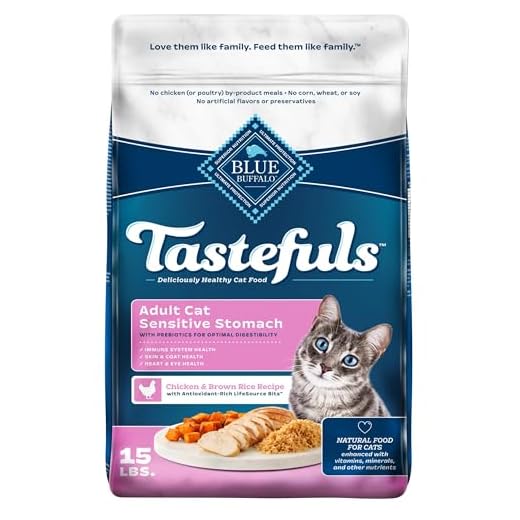

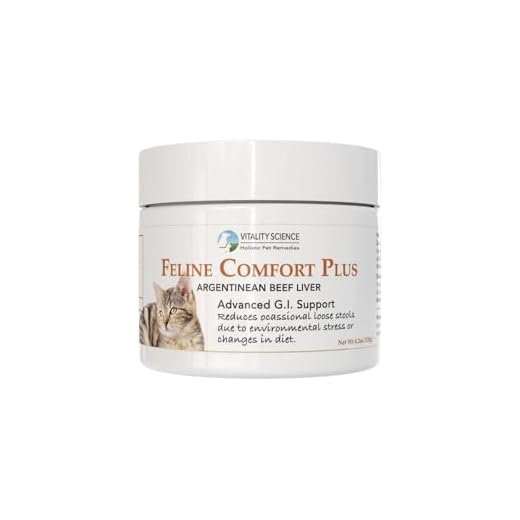
Choose a bland diet featuring boiled chicken or rice. These ingredients are gentle on the stomach and can help firm up stools. Introduce small portions gradually, monitoring any changes in condition.
Consider adding a probiotic specifically designed for felines. These beneficial bacteria can aid in restoring gut health, which may be disrupted. Consult with a veterinarian for recommendations on suitable products.
Ensure access to fresh water at all times. Staying hydrated is critical, especially when experiencing digestive issues. If hydration becomes a concern, electrolyte solutions formulated for pets might be beneficial.
Observe behavior closely. If symptoms persist beyond 24 hours or worsen, immediate veterinary consultation is advisable. Early intervention can prevent more significant health issues.
Recommendations for Managing Loose Stools
Rice mixed with boiled chicken provides a gentle option for settling upset tummies. Ensure the chicken is skinless and boneless, finely shredded for easy consumption.
Incorporating plain canned pumpkin can help firm up stool. Just one or two teaspoons mixed into meals can make a difference.
Probiotics designed for felines support gut health, assisting in restoring balance. Look for specific formulations available at pet stores or consult a veterinarian for recommendations.
Hydration is key. Fresh water should always be accessible. Adding an electrolyte solution made for pets can aid in replenishing lost fluids.
Keep an eye on the diet. Gradually reintroducing regular food after a short fasting period can help. Start with small portions to gauge tolerance.
If symptoms persist beyond a day or two, seeking veterinary advice is advisable. Early intervention can prevent complications.
Understanding the Causes of Diarrhea in Cats
Identifying the underlying issues is critical. Dietary changes, such as introducing new foods or treats, can trigger gastrointestinal disturbances. Certain ingredients, particularly those that are rich in fat or contain allergens, might also contribute to loose stools.
Infections and Parasites
Bacterial and viral infections are common culprits. Pathogens like salmonella or feline parvovirus can lead to serious symptoms. Additionally, parasites such as worms or protozoa can disrupt digestion, requiring prompt veterinary attention.
Health Conditions
Chronic diseases, including inflammatory bowel disease or hyperthyroidism, may manifest through irregular bowel movements. Stress can also play a role, as changes in environment or routine might affect gut health. Regular check-ups with a vet are recommended to rule out these health issues.
Safe Foods to Offer Your Feline with Loose Stools
Plain boiled chicken is a great option. Remove any skin and bones before serving. This protein is easy on the stomach and helps maintain energy levels.
White rice can be introduced to provide a binding effect and is gentle on digestion. Mix it with shredded chicken for a balanced meal.
Plain pumpkin, either canned or cooked fresh, acts as a natural source of fiber. Just a small spoonful can aid in firming up stools.
Plain yogurt, with no added sugars or artificial flavors, offers probiotics that may help restore gut health. A teaspoon should suffice.
Mashed potatoes, without butter or seasoning, can be comforting. They provide carbohydrates that are easy to digest.
Small amounts of cooked carrots can be beneficial too. They are nutritious and can help in firming up the digestive system.
| Food | Benefits |
|---|---|
| Boiled Chicken | Easy protein source, energy maintenance |
| White Rice | Binds stools, gentle on digestion |
| Pumpkin | Natural fiber source, helps firm stools |
| Plain Yogurt | Probiotics for gut health |
| Mashed Potatoes | Comforting carbohydrates, easy digestion |
| Cooked Carrots | Nutrient-rich, aids in digestion |
Always monitor reactions to new foods and consult with a vet if symptoms persist. Keeping meals simple helps ensure a smooth recovery.
Hydration Strategies for Cats with Diarrhea
Provide access to fresh water at all times. Encouraging frequent drinking can help maintain hydration levels. Consider using a cat water fountain; the flowing water often entices felines to drink more.
Electrolyte Solutions
Incorporate electrolyte solutions designed specifically for pets. These can replenish lost minerals and fluids. Follow the manufacturer’s instructions for the right dosage. Always consult with a veterinarian before introducing new products.
Wet Food Options
Opt for canned food, which contains higher moisture content compared to dry kibble. This not only provides hydration but also offers essential nutrients. Mixing wet food with water can further increase fluid intake. If illness persists, consider discussing options like liquid dewormer for cats with a veterinarian, as some conditions may require additional interventions.
When to Consult a Veterinarian for Diarrhea
If symptoms persist for more than 24 hours, a visit to the vet is advisable. Continuous loose stools can lead to dehydration and indicate underlying health issues. Pay attention if there’s blood present in the stool; this is a serious sign. Also, if a furry friend is displaying lethargy, vomiting, or refusing food, these require immediate veterinary attention.
Signs Indicating Urgent Care
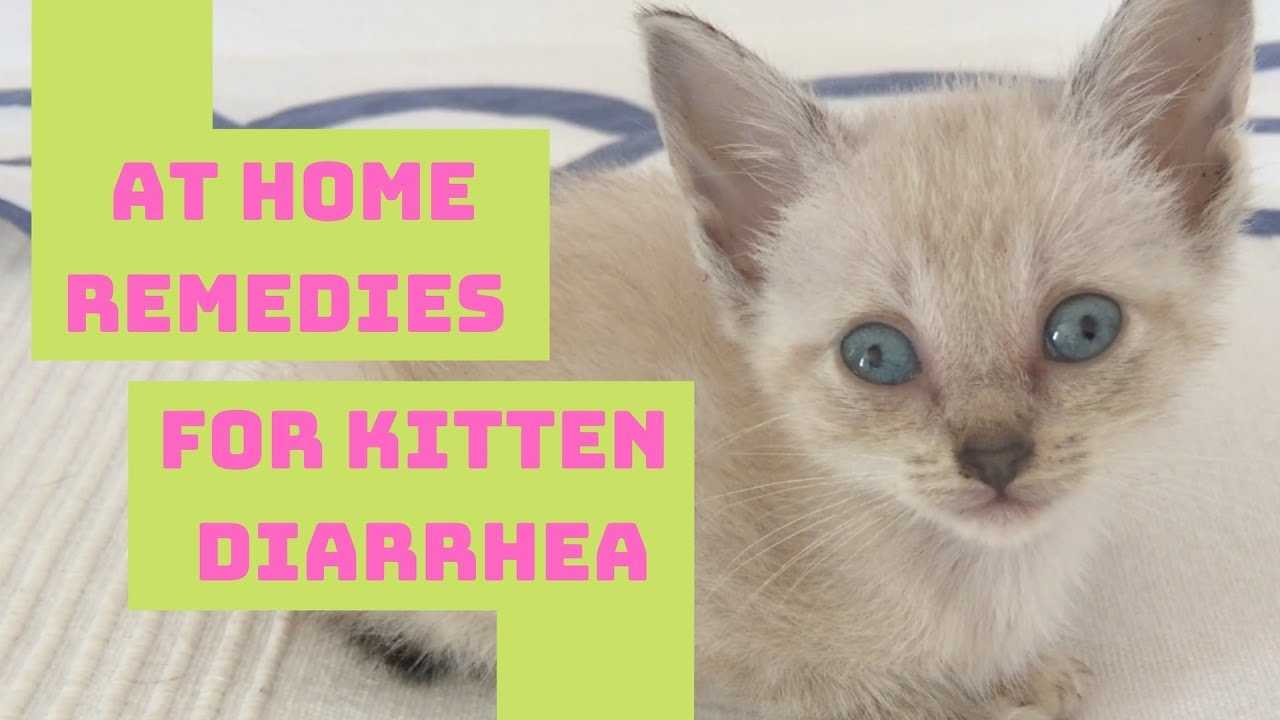
Fever exceeding 103°F (39.4°C) should not be overlooked. An increase in frequency or volume of feces combined with signs of distress or discomfort is alarming. If a feline companion is excessively thirsty or showing signs of dehydration, such as dry gums or sunken eyes, seek professional help without delay.
Age and Health Factors
Kittens or senior pets with diarrhea need special consideration. Young ones are particularly vulnerable to dehydration, while older ones may have pre-existing conditions that complicate digestive issues. Consulting with a vet sooner rather than later can ensure proper care and treatment tailored to specific needs.
Over-the-Counter Remedies for Feline Digestive Issues
Activated charcoal is a commonly recommended option for managing mild digestive disturbances. It works by absorbing toxins in the gut and can help firm up loose stools. Dosage should be based on weight, so consulting packaging instructions is essential.
Probiotics designed for felines can restore balance to gut flora. These supplements come in powder or capsule form and can be mixed into food. Look for products specifically formulated for cats to ensure safety and effectiveness.
Another useful product is kaolin-pectin, a natural remedy that soothes the digestive tract. It can help reduce inflammation and adsorb excess fluid. Administer according to the package guidelines for proper dosing.
Hydration Aids
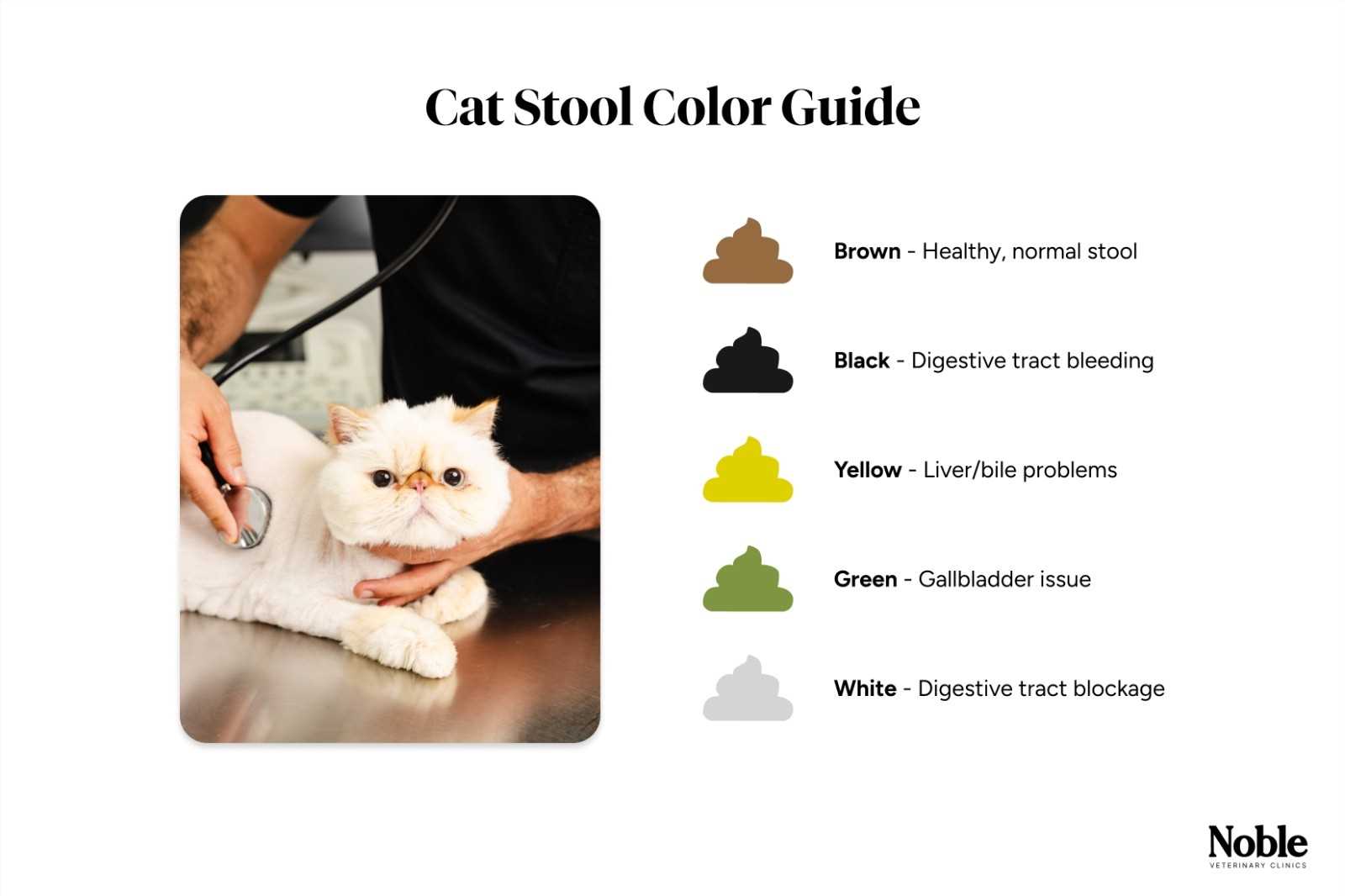
Electrolyte solutions made for pets can assist in rehydration. Offering these specially formulated liquids can help maintain fluid balance. Always ensure fresh water is available as well.
Dietary Adjustments
Some over-the-counter options include bland diet mixes that are easy to digest. These are often rice-based or include pumpkin, which can help solidify stools. Always transition slowly to avoid further upset.
Monitoring Your Cat’s Recovery from Diarrhea
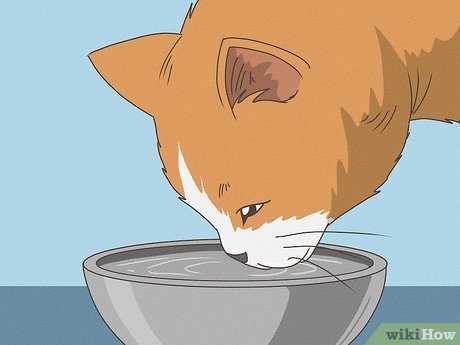
Keep a close eye on behavior and litter box habits. Regular check-ins can help catch any changes early. Here are specific indicators to watch for:
- Stool Consistency: Track improvements or any setbacks. Healthy waste should be firm and formed.
- Appetite: Observe eating patterns. A return to normal eating is a positive sign.
- Energy Levels: Active and playful behavior indicates recovery. Lethargy could suggest ongoing issues.
- Hydration: Ensure drinking water intake is adequate. Dehydration can be a concern during this time.
Document any changes in a journal. This record can be useful for discussions with a veterinarian if needed. Not all cases require professional help, but knowing when to seek advice is key.
Monitor for additional symptoms like vomiting, fever, or unusual lethargy. These may indicate complications that need prompt attention.
For those curious about nutrition, understanding protein sources can also be beneficial. For instance, where do cows get their protein can shed light on dietary choices that might help in the long run.
Following these guidelines can aid in a smooth recovery process. Stay attentive and proactive in supporting health during this time.









